DENTAL ABSCESS OVERVIEW
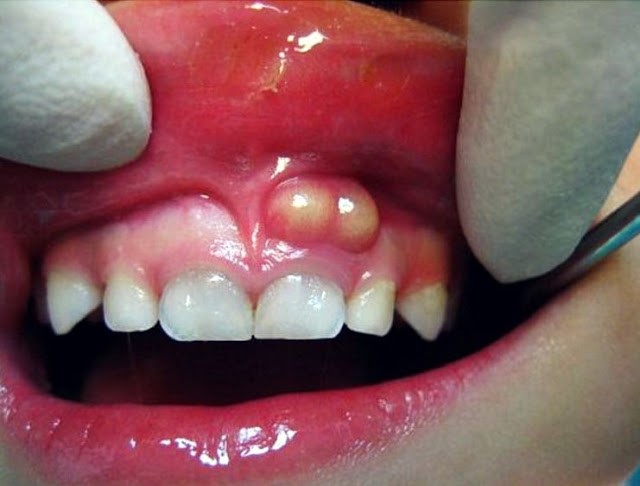
A dental abscess is an infection of the mouth, face, jaw, or throat that begins as a gum infection, toothinfection, or cavity. These infections are common in people with poor dental health and result from lack of proper and timely dental care.
• Bacteria from a cavity can extend into the gums, the cheek, the throat, beneath the tongue, or even into the jaw or facial bones. A dental abscesscan become very painful when tissues become inflamed.
• Pus collects at the site of the infection and will become progressively more painful until it either ruptures and drains on its own or is drained surgically.
• Sometimes the infection can progress to the point where swelling threatens to block the airway, causing difficulty breathing. Dental abscesses can also make you generally ill, with nausea, vomiting, fevers, chills, and sweats.
Causes of a Dental Abscess
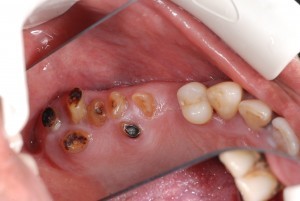
The cause of these dental abscesses is direct growth of the bacteria from an existing cavity into the soft tissues and bones of the face and neck.
An infected tooth that has not received appropriate dental care can cause a dental abscess to form. Poor oral hygiene (such as not brushing, flossing, or rinsing properly or often enough), smoking, alcohol, poor diet, and certain medical conditions and medications can increase risk of cavities to form in your teeth. The infection then may spread to the gums and adjacent areas and become a painful dental abscess.
Symptoms of a Dental Abscess
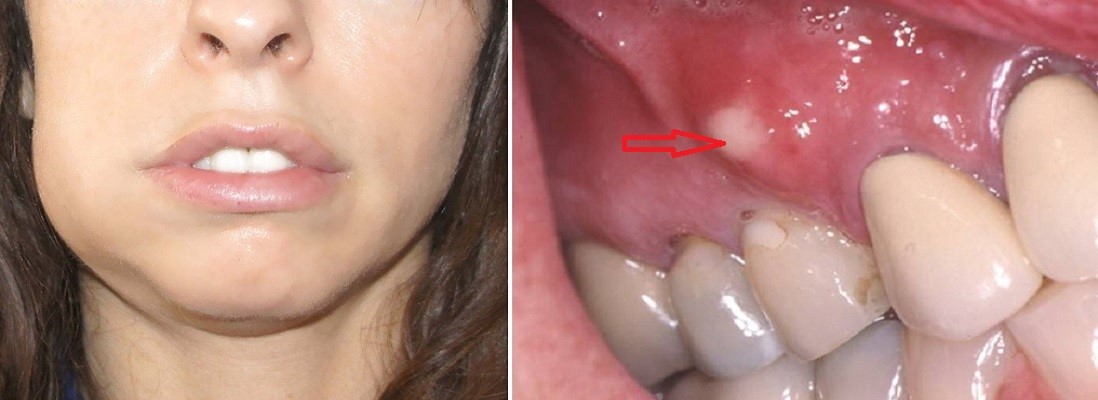
Symptoms of a dental abscess typically include:
• Pain
• Swelling
• Redness of the mouth and face
Symptoms of advanced infection may include:
• Nausea
• Vomiting
• Fever
• Chills
• Diarrhea
Other signs of an abscess might include, but are not limited to:
• Cavities
• Gum inflammation
• Oral swelling
• Tenderness with touch
• Pus drainage
• Difficulty fully opening your mouth or swallowing
When to Seek Medical Care for a Dental Abscess
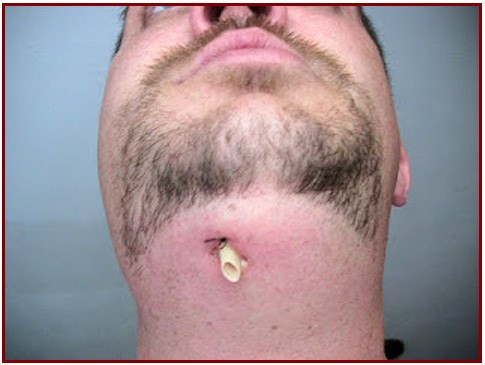
If you think you have an abscess, call your dentist. If you cannot reach a dentist, go to a hospital's emergency department for evaluation, especially if you feel sick.
• If an infection becomes so painful that it cannot be managed by nonprescription medicines, see your doctor or dentist for drainage.
• If you develop fever, chills, nausea, vomiting, or diarrhea as a result of a dental abscess, see your doctor.
• If you have intolerable pain, difficulty breathing or swallowing, seek immediate medical care in the emergency room.
Exams and Tests for a Dental Abscess
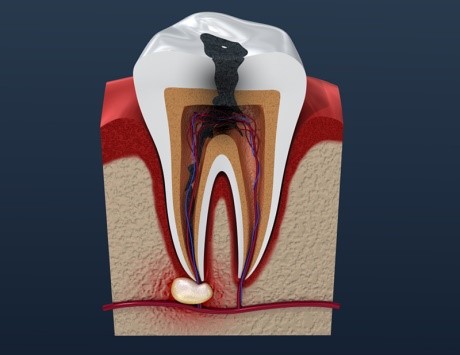
A doctor or dentist often can determine by a physical exam if you have a drainable abscess. X-rays of the teeth may be necessary to show small abscesses that are at the deepest part of the tooth.
Treating a Dental Abscess at Home

• Many people who have cavities or toothaches can take NSAIDs, or nonsteroidal anti-inflammatory medicines, such as ibuprofen (Advil, Motrin) or naproxen (Aleve), or pain medicine such as acetaminophen (Tylenol) as needed for relief of pain. Check with your doctor first is you have any medi
• If an abscess ruptures by itself, warm water rinses will help cleanse the mouth and encourage drainage.
Medical Treatment for a Dental Abscess
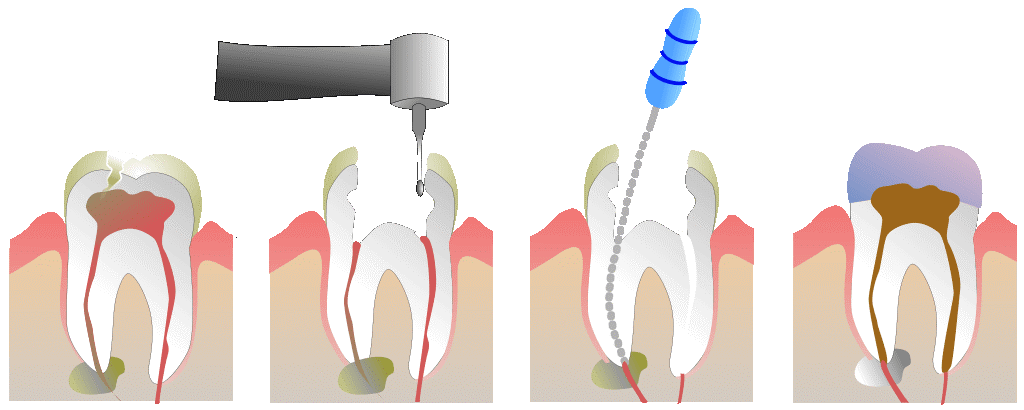
The doctor may decide to cut open the abscess and allow the pus to drain. It can also be drained through the infected tooth at the start of a root canal procedure. Unless the abscess ruptures on its own, these are usually the only ways that the infection can be cured. People with dental abscesses are typically prescribed pain relievers and, at the discretion of the doctor, antibiotics to fight the infection. An abscess that has extended to the floor of the mouth or to the neck may need to be drained in the operating room under anesthesia
Dental Abscess Follow-Up Care
With a dental abscess, as with each and every illness, comply with your doctor's instructions for follow-up care. Proper treatment often means reassessment, multiple visits, or referral to a specialist. Cooperate with your doctors by following instructions carefully to ensure the best possible health for you and your family.
Prevention of a Dental Abscess
Prevention plays a major role in maintaining good dental health. Daily brushing and flossing, and regular dental checkups can help prevent tooth decay and dental abscesses.
• Remember to brush, floss, and rinse as directed by your dentist.
• If tooth decay is discovered early and treated promptly, cavities that could develop into abscesses can usually be corrected.
• Avoidance of cigarette smoking and excess alcohol consumption can help, too.
Outlook for Dental Abscesses
The prognosis is good for the resolution of a small dental abscess, once it has ruptured or been drained. If the symptoms are improving, it is unlikely that the infection is getting worse. Proper follow-up care with your dentist is mandatory for reassessment of your infection and for taking care of the problem tooth.
*This article was copied from https://www.webmd.com web site.